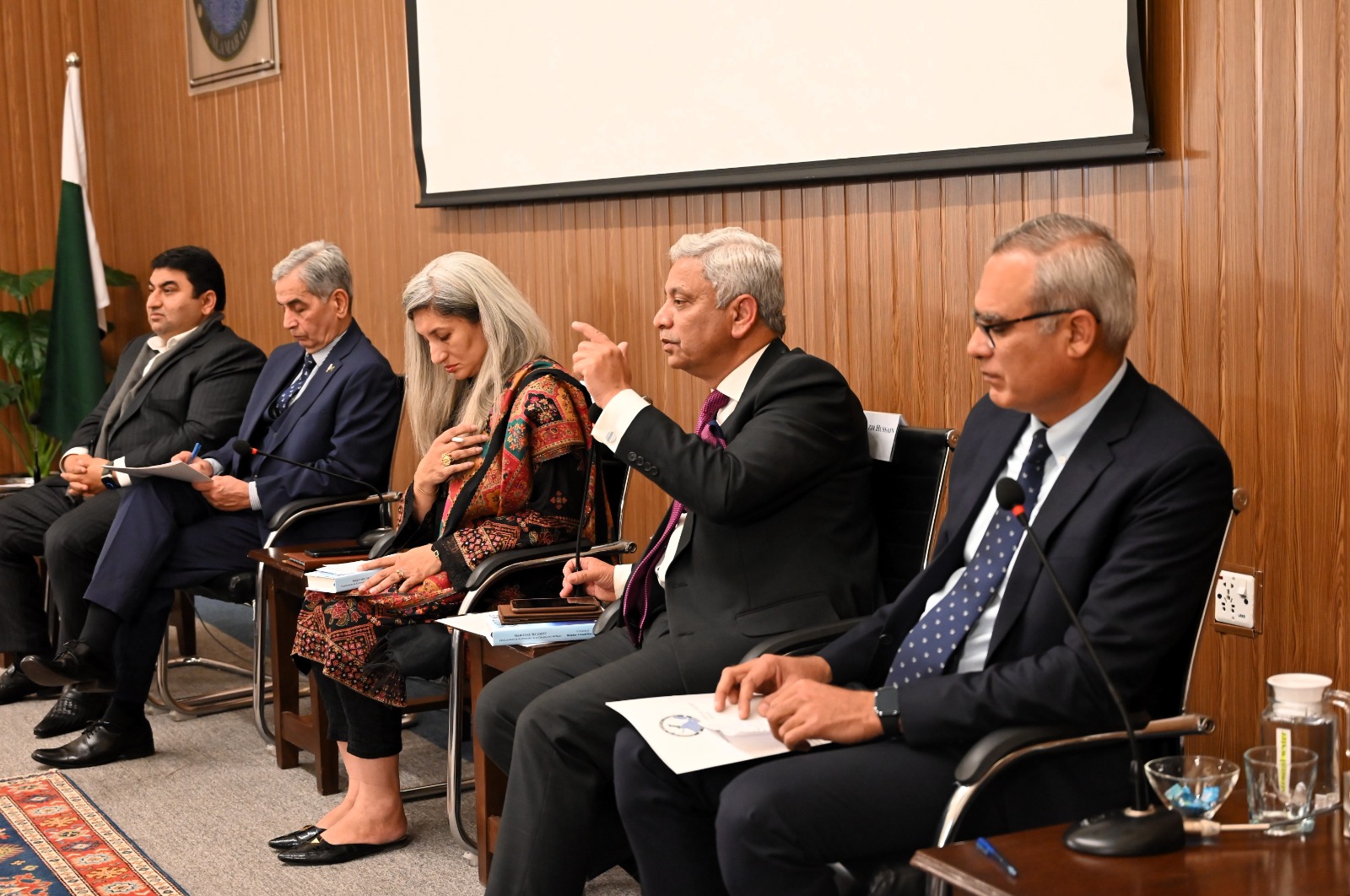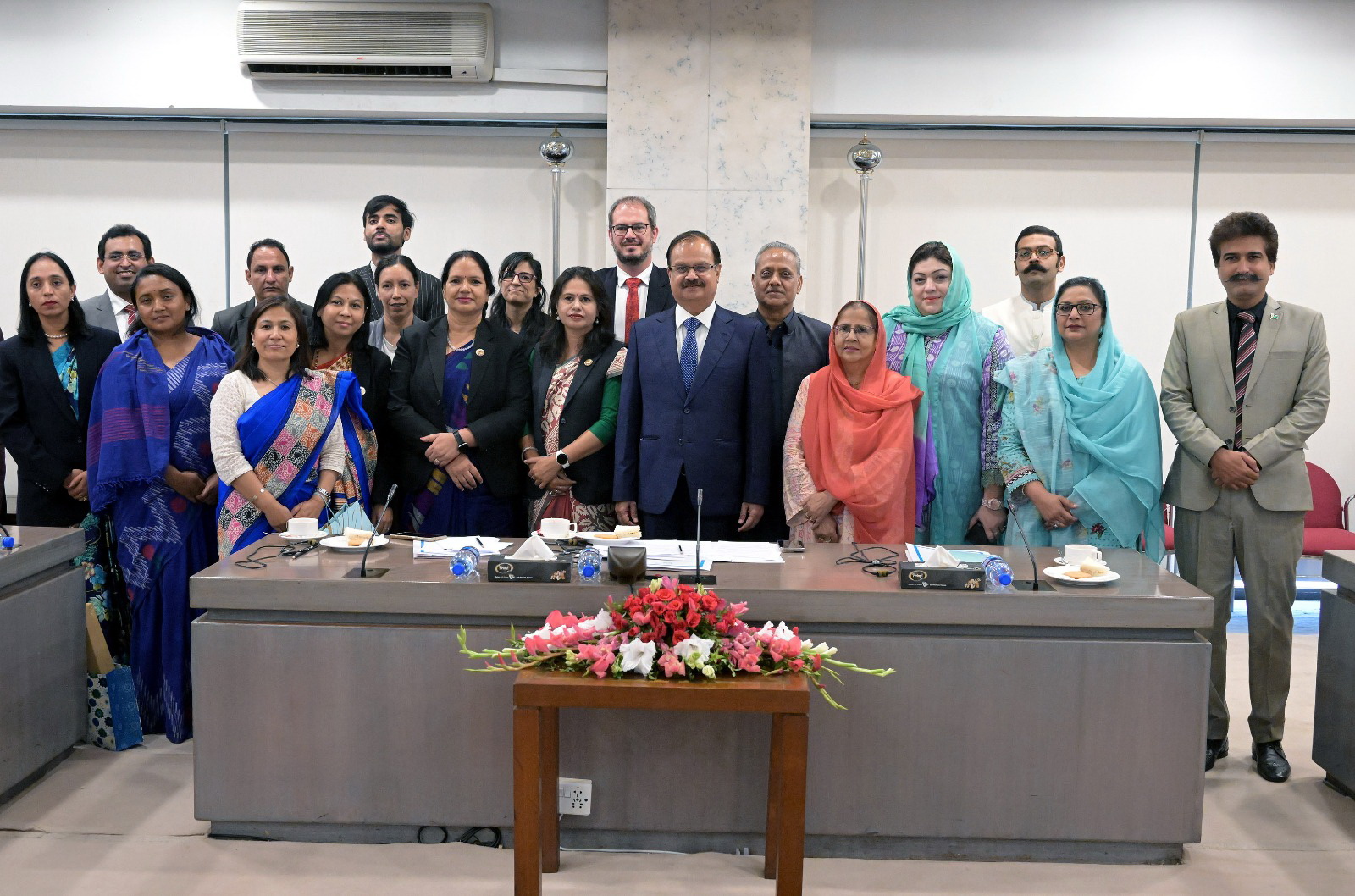Pakistan urged to swiftly develop maritime policy to respond to growing Indo-Pacific complexities
Islamabad, February 2: It is high time that Pakistan takes decisive steps towards developing its maritime policy to respond proactively to increasing Indo-Pacific geopolitical complexities and harness the potential of its coastlines. Along with this, Pakistan must prioritize its internal coherence, align its national priorities, and create awareness among the masses about the maritime domain.
This was highlighted by speakers at the book launch ceremony of ‘Maritime Security: Challenges & Responses in a Changing World,’ authored by Vice Admiral Iftikhar Ahmed Rao (retd), Special Assistant to Prime Minister for Maritime Affairs, and published by IPS Press, the publishing arm of the Institute of Policy Studies (IPS), Islamabad. The event was organized by the Institute of Regional Studies (IRS), Islamabad.
The session was addressed by Khalid Rahman, chairman IPS, Ambassador (r) Nadeem Riyaz, president, IRS, Dr Qamar Cheema, executive director, Sanobar Institute, Dr Nazir Hussain, former dean, School of Politics and International Relations (SPIR), Quaid-i-Azam University (QAU), Rear Admiral (r) Syed Faisal Ali Shah, and moderated by Dr Salma Malik, associate professor, QAU. The event brought together a distinguished group of speakers and scholars.
In his opening remarks, Ambassador Nadeem Riyaz commended the book’s comprehensive examination of the vast maritime domain, emphasizing its potential to shape Pakistan’s future maritime policy, the significance of which is increasing vastly.
Nazir Hussain lauded Vice Admiral Rao for turning a practitioner’s knowledge into theoretical form. He highlighted the practicality of the book’s insights, suggesting its inclusion as a textbook in undergraduate programs. He discussed that unlocking and safeguarding the inherent potential of Pakistan’s maritime domain and coastlines necessitates a cohesive national endeavor, which requires education and awareness.
Qamar Cheema said that the global discourse extensively focuses on the Indo-Pacific, and the major countries have even developed their Indo-Pacific policies, while Pakistan is yet to take strides in this direction. He stressed that the current international dynamics in the Indo-Pacific demand a more proactive response from Pakistan, given its strategic coastline. It is imperative to explore new strategies and harness the potential of this coastline effectively. He highlighted that media can be pivotal in positively educating the public.
Faisal Ali Shah said although Pakistan is committed to collective maritime security, sea blindness prevails. This necessitates creating awareness about the maritime assets of both the Sindh and the Makran coasts. Moreover, as no country can mitigate such challenges alone, Pakistan needs to maintain its engagement, cooperative arrangements, and openness to new alliances. A comprehensive government approach to leverage maritime opportunities is also imperative, he added.
Introducing his book, Vice Admiral Rao highlighted the intricate geopolitical complexities evident in recent maritime developments in the Indo-Pacific. Specifically, India is viewed as a net security provider, while its actions in the region are critiqued as potentially problematic. He emphasized that Pakistan must take a step ahead, and for that, developing a maritime policy, maintaining internal coherence, and rightly setting national priorities are important.
In his concluding remarks, Khalid Rahman said that the global significance of the sea as a common resource is underscored by its role in maritime security, which revolves around four key factors: the marine environment, economic development, national security, and human security. This book has significantly acknowledged the interconnectedness of these factors. He said that almost all the conflicts between nations throughout history and even in the current period are manifestations of seeking supremacy on the seas.
The book provides a comprehensive look at the multifaceted domain of maritime security. It defines the sector’s historical background while navigating the evolution of the concept of maritime security, challenges, and solutions that define this evolving landscape. Furthermore, the book explores the maritime security strategies of various regions and countries. It also discusses Pakistan’s maritime aspects and the contours of its economic and military security strategies.




